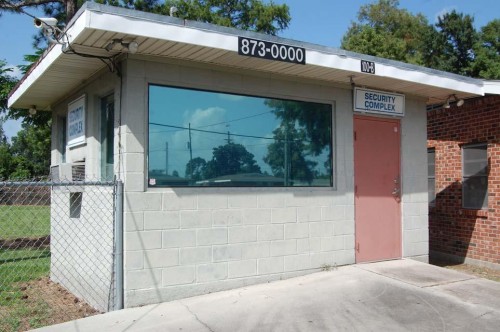
Lola Dardar
July 27, 2010
Senator Circle residents oppose duplex donation
July 29, 2010With individuals and companies submitting countless claims a day through BP, it’s easy to forget that a third entity is in need of financial help as well – local governments.
That’s why the Louisiana Legislative Auditor (LLA) developed information to help local government officials in the affected parishes with the process of submitting claims.
“The Louisiana Legislative Auditor is the primary and responsible auditor for all of state and local government,” said first assistant legislative auditor David Greer. “We’re trying to assure accountability in all of government.”
The department created forms – similar to FEMA forms – which local governments are encouraged to model in their paperwork to BP.
The LLA forms aren’t necessary to file a claim through BP, but Covington lawyer and special council to the Attorney General’s Office, Hank Dark, is offering local governments help with filing paperwork correctly.
Governmental claims are filed in accordance with the Oil Pollution Act of 1990, which Congress approved in response to the Exxon Valdez Oil Spill in Alaska in 1989.
“At the time, there was no comprehensive legislation that provided for damages for oil spills,” said Dark. “There were various other laws that were kind of scattered about, and Congress got right to work after the Valdez spill.”
Parish or town governments can claim for real or personal property damages, loss of revenues and loss of public services.
Any money a government receives is separate from BP’s $20 million escrow fund, according to Dark.
Additionally, a parish or town government can claim removal costs, any cost associated with cleaning up oil.
“The Oil Pollution Act requires the responsible party, in this case BP, to pay interim damage claims or removal cost claims. [Government entities] can file as many claims as they want, as often as they want as long as they can document them,” said Dark. “If they’re losing money every week, they can file a claim every week. They don’t have to wait until the end, suffer it out and then analyze the cost.”
Dark urges government entities to get the ball rolling with claims as soon as possible.
“Presenting the claim sets the clock running for BP if BP doesn’t pay the claim,” said Dark. “What the law says is once the claim is presented, the responsible party is supposed to pay the claim or deny the claim within 90 days after you present the claim.”
If a claim is denied or 90 days has passed, Dark said government entities are now given a choice – bring the claim to U.S. Coast Guard’s National Pollution Fund or sue BP.
Dark said at this point, litigation against BP would be the best solution. “The Coast Guard’s National Pollution Fund is very limited source. The balance in it right now is $1.8 billion, and that’s going to go very quickly so they may not have money to pay you. And the Coast Guard is probably more stringent than BP in what they’re paying, so if you send a claim to BP and they’re not paying it, there’s a very good chance the Coast Guard isn’t paying it either,” said Dark.
Although BP has said they will consider claims that are in response to lost revenues from the moratorium on deepwater oil drilling, Dark’s biggest fear is that BP will deny all claims of that nature, leaving local governments with no where to turn for money except to the federal government.
“If you’re not sure, submit it anyway. Even if you don’t think there’s a chance in the world of getting this claim paid, submit it. All they can say is no,” Green said.






